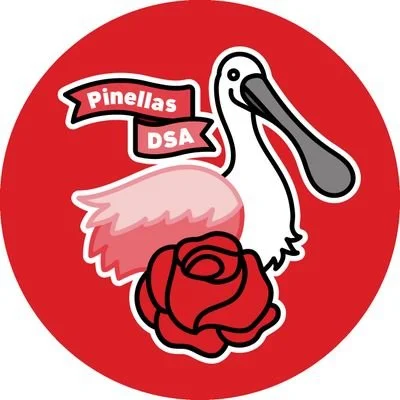

How to Explain the Rise and Reemergence of Trump
Bruce Nissen

Why is Trumpism so popular in our country? In the past, even in times of conservative resurgence, the right-wing politicians and governments have not so openly flaunted basic rules of constitutional governance as has Trump (Think Richard Nixon, Ronald Reagan, etc.).
A recent review in The Nation magazine by Kim Phillips-Fein of Melinda Cooper’s book Counterrevolution: Extravagance and Austerity in Public Finance addresses this question in a manner I had never considered before (November 2025 edition of The Nation). Phillips-Fein argues that more-or-less extreme inequality has always been with us in the U.S. In the 20th century that inequality was produced by major industrial corporations which were collectively controlled by shareholders that included pension funds, banks, and wealthy individuals. This has changed in today’s economy: such stakeholders have been supplanted by private equity funds, financial firms, family trusts, and tech firms owned by a few wealthy founders.
These new rulers are no longer accountable to bureaucratic middle managers or, for the most part, a larger pool of external shareholders. Instead, the new powerhouses are “families” (either biological or ideological) which are freer from normal constraints by outside forces. Private equity, venture capital, family trusts, and the like are much more likely to pursue politically aggressive goals of an extreme libertarian or culturally conservative nature.
For example, look at Trump’s cabinet. Betsy deVos (Dept. of Education), Steven Minuchin (Treasury), Sonny Perdue (Dept. of Agriculture), hedge fund operative Scott Bessent (Treasury Secretary), investment banker Howard Lutnick (Dept. of Commerce) all populate or have populated Trump’s cabinet. These are names of families who are owners of private capital; they are not operatives or bureaucrats serving ruling class family interests as a whole.
An underlying shift in the nature of American capitalism has produced a new, more open and markedly brutal form of federal governance, according to this perspective. Earlier relatively frictionless dominance of corporations by shareholder interests is to some degree supplanted by family rule enforced by gloves-off brute force.
As Phillips-Fein puts it:
For Trump, the United States is just one large, privately held corporation, controlled and dominated by a few people who perceive themselves as being able to do what they want. No stockholders, no activist shareholders, no debates or discussion, no annual meetings, no publicly released reports, no room for dissent or deliberations — just a tiny group of owners who enrich themselves while the rest of us stand on the sidelines.
This may explain why Trump rules as he does, but it does not explain his popularity. Here we need to note that Trump is not all that popular — his approval rating for the way he runs the economy is down in the 30+% range. In addition to standard explanations for what support Trump does have in the white segment of the U.S. working class (racism, fear of immigration and immigrants), Phillips-Fein also cites fragmentation of workers and the decline of previous unifying forces within the class, such as unions.
If this explanation for Trumpism is accurate, we are in for heightened struggle against the working class in the foreseeable future. I hope that the DSA and allied anti-fascist forces have grown and will continue to grow rapidly enough to defeat this coming threat. Labor unions, tenant unions, debtor’s associations or debtor’s unions, independent media, and more will be needed. We have our work cut out for us, and the DSA should be at the center of the resistance.


Chapter Notes: December 2025

Happy Holidays, Pinellas DSA members! Another great year of organizing is coming to a close, which means it’s time for celebrating, sharing good food, and of course, voting in annual chapter elections. Read this year’s final newsletter for all the details on the upcoming 2026 Steering Committee elections, an update on how our chapter is supporting Starbucks workers on strike, and a look into the sketchy anti-municipal power lit showing up on residents’ doors in Clearwater (you’ll never guess who’s behind it).
November Highlights

Our chapter hosted an election night watch party where we came together to celebrate Zohran Mamdani’s historic victory in New York City. We had a great time chatting with both longtime DSA members and local community members inspired by his campaign. This was a big win for DSA, but it was far from our only win that night — more than a dozen DSA candidates across the country won their races in cities like Atlanta, Minneapolis, and Detroit.
Highly publicized elections with DSA candidates often bring more people into the movement, and the national organization announced last week that DSA has officially surpassed 90,000 members! If you have friends or family who are curious about DSA but haven’t become members yet, now is the time to ask them to join. Generate your own unique referral link on the Fall Drive Website and recruit 3+ people to win a limited edition t-shirt.

Earlier this month the Ecosocialist Working Group, together with longtime member Joe W., hosted a volunteer morning focused on gardening and grid talk at the Bartlett Park Community Garden. Joe has been organizing gardening days at this site for years, and the space provided a perfect setting to connect with members and curious neighbors about recent updates and brainstorm on future plans.

Starbucks Workers United is on strike! Workers are demanding higher take-home pay, better hours and staffing, and an end to the company’s union-busting tactics. Pinellas DSA members have shown up in solidarity by flyering outside local Starbucks locations and asking customers to get their coffee elsewhere instead of crossing the picket line. The union is holding a rolling strike, which means that more stores go on strike every week that Starbucks fails to agree to a fair contract. Stay tuned to the Labor Committee channel in Discord for updates about how you can help support SBWU locally as more stores join the strike.
Upcoming Events
International Solidarity Working Group Meeting
Tuesday, December 2 at 6:30 PM — Allendale UMC in the Wesley Room & Virtual
Zoom Link
Steering Committee Meeting
Wednesday, December 3 at 6:30 PM — Allendale UMC in the DSA Office & Virtual
Zoom Link
Housing Working Group + St. Pete Tenants Union Flyering at The Morgan
Thursday, December 4 at 6:00 PM — Meet-Up Location: In front of the Family Pak and Ship at 2822 54th Ave S
Housing Working Group + St. Pete Tenants Union Tenants Meeting at The Morgan
Friday, December 5 at 6:00 PM — 1401 62nd Ave S, St. Petersburg
This is a Tenants Meeting for residents of The Morgan to discuss the severe issues facing their complex — from structural damage to unclean common spaces — and what we can do about them.
Tri-Chapter Cookout
Saturday, December 6 from 12:00–3:00 PM — John Chesnut Sr. Park (Picnic Shelter #11)
2200 E Lake Rd S, Palm Harbor
RSVP Here
Come out for our first-ever tri-chapter social bringing together Pasco-Hernando, Pinellas, and Tampa DSA chapters! We’ll have a cookout/potluck, outdoor games, and plenty of camaraderie. Please bring a dish if you can. The food sign-up sheet can be found in the RSVP form alongside a map of the park.
Housing Working Group + St. Pete Tenants Union Meeting
Monday, December 8 at 7:00 PM — Allendale UMC in the Hybrid Room & Virtual
Zoom Link
Unions 101
Tuesday, December 9 at 6:30 PM — Allendale UMC in the Hybrid Room & Virtual
Zoom Link
The fourth and final installment of our annual core education series (the other three are DSA 101, Organizing 101, and Capitalism vs. Socialism). This session will focus on the relationship between socialism and the labor movement and the basics of union organizing.
Fundraising Committee Meeting
Thursday, December 11 at 6:30 PM — President Barack Obama Main Library in the Obama Room
3745 9th Ave N, St. Petersburg
December General Body Meeting
Sunday, December 14 at 2:00 PM — Allendale UMC in the Community Center & Virtual
Zoom Link
Our biggest business meeting of the year! This month’s meeting will include annual elections for Steering Committee offices (see below) as well as voting to recharter working groups. All Pinellas DSA members in good standing are encouraged to attend this meeting to participate in discussion and cast their votes in our chapter’s democratic process. We will also be hosting a chapter social after the meeting to celebrate the holiday season and the end of a year of socialist organizing together!
Steering Committee Transition Meeting
Thursday, December 18 at 6:30 PM — Allendale UMC in the Hybrid Room
This is a meeting for the 2025 Steering Committee to turn over their roles to the incoming 2026 Steering Committee. The meeting is open to all members who want to observe. It may be subject to rescheduling based on the availability of the members elected to these roles.
International Solidarity Reading Group: Cuba: An American History
Saturday, December 20 at 4:00 PM — Allendale UMC in the Hybrid Room
Join the International Solidarity Working Group for a book study on Cuba: An American History by Ada Ferrer, which looks at the history of Cuba and its relationship with the US. Please read up to page 153 for the first session.
2026 Steering Committee Elections
At our Sunday, December 14 General Body Meeting, we will be holding elections for next year’s Steering Committee, our chapter’s elected leadership body made up of six members who serve one-year terms.
Below is a list of Steering Committee offices:
- Co-Chair (2 seats)
- Treasurer
- Organizer
- Secretary
- Social Media Coordinator
Members in good standing may nominate or self-nominate candidates. Holding membership for at least thirty days is a requirement to vote. You will not be eligible to vote in this election if you became a member of DSA after Friday, November 14.
To nominate yourself or another member, please fill out this form.
See a current list of nominees here.
Once a nomination is accepted, the Nominations Committee will send a short questionnaire to the nominee. You can view the questionnaire responses that we have received so far here.
Voting will open during the General Body Meeting via ranked choice voting. The Nominations Committee will distribute the URL for the ballot in person, on Zoom, and in Discord. Voting will open after nominations close and all candidates have spoken (around 2:30 PM) and will close toward the end of the meeting (around 3:30 PM). Results will be published on Discord by Monday, December 15 at noon.
Dump Duke Campaign
Since the last update, Duke has been hard at work, but not to improve service or lower rates. Their current focus is spreading misinformation and putting pressure on Clearwater officials.
You’ll likely see some of their propaganda in the coming weeks if you haven’t already. It may come directly from Duke, from the lobbying group Edison Electric Institute, or from one of their newly formed dark-money 501(c)(6) organizations, Clearwater Energy Alliance and Pinellas Energy Alliance.
How much money are they spending on these efforts? It’s difficult to know because 501(c)(6) groups often obscure the sources of their funding and how the money is used. One thing is almost certain: they’ll pass the cost of this massive social media campaign on to us.
So, the most important thing we can do right now is show our support for Clearwater officials. Even if you do not live within the city limits, take a moment to let them know in your own words that their work is monumental and historic. Click here to send a message of support to Clearwater leaders.
Back at Halloween on Central in October, member Jason Sniffen put together a video featuring our socialist in office, St. Pete City Council Member Richie Floyd, asking local residents how they feel about Duke Energy. You can watch the video on Instagram or YouTube.
Upcoming Canvasses
Saturday, December 13 at 10:30 AM — Lake Maggiore Park
3601 Dr Martin Luther King Jr St S, St. Petersburg
RSVP Here
Saturday, January 10 at 10:30 AM — Lake Maggiore Park
3601 Dr Martin Luther King Jr St S, St. Petersburg
We also have two upcoming neighborhood association meetings this month! If you’re interested in helping or know a group that would like to hear from Dump Duke, respond to this email or reach out directly to Marley or Jason.
If you would like to create an event on the Pinellas DSA calendar, please submit a Meeting & Event Request Form no later than two weeks prior to the requested event date. You can always check the Pinellas DSA website for our full chapter calendar and email us with any questions at dsa.pinellas@gmail.com.
We hope to see you at some upcoming events!
Follow us on social media:
Instagram: @pinellasdsa
Twitter: @pinellasdsa
Bluesky: @pinellasdsa.bsky.social
Facebook: facebook.com/pinellasdsa
YouTube: @pinellasdsa
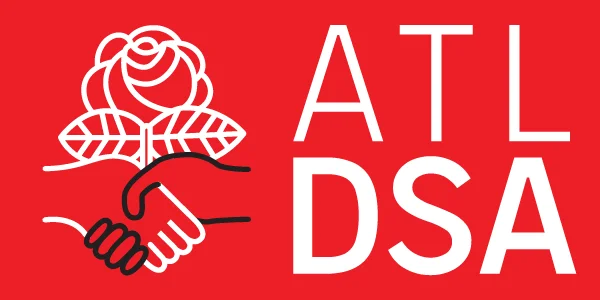

Atlanta DSA endorses Gabriel Sanchez for State House
Atlanta DSA is proud to once again endorse our comrade Gabriel Sanchez for re-election to the Georgia State House, representing District 42.
In 2024, we made history by electing Representative Sanchez, the first Democratic Socialist in Georgia’s State House, on a platform of housing, healthcare, and an economy that works for all of us. Now, he’s running for re-election in 2026 to continue to fight for working families, stand up to fascism, and build a better Georgia for all. Atlanta DSA is thrilled to back our comrade once again.
Gabriel has been an active member of Atlanta DSA since 2019 and has spent years supporting striking workers on picket lines, organizing to Stop Cop City, campaigning for abortion rights, and advocating for a Free Palestine. During his first term, Gabriel continued fighting for working Georgians in the State House with support from a staff made up of DSA members. He introduced bills to raise the minimum wage to $20 and end corporate ownership of Georgia homes, voted to eliminate subminimum wages for disabled workers and against tax cuts for the wealthy, and authored and held a hearing for a bill to end rental price fixing via AI software. Gabriel also brought his many years of experience as a community organizer into his first term. Over the past year, he has hosted in-district mutual aid events in partnership with Atlanta DSA, as well as town halls and meet and greets to speak directly with residents about the pressing issues they’re facing right now. Our chapter is extremely proud of the work Representative Sanchez has done, and we look forward to continuing to build a Georgia for all alongside him.
As a proud Democratic Socialist, Gabriel is refusing money from corporations or their PACs. Just like last time, we’re running a grassroots campaign of, by, and for working people, and we need your help to win this election. Donate now at SanchezForGeorgia.com
In the lead-up to the 2024 election, Atlanta DSA knocked thousands of doors in District 42 to talk directly to voters about Gabriel’s campaign for housing, healthcare, and an economy for all. We’re planning to do the same next year. Sign up now to volunteer with our campaign at atldsa.org/Volunteer4Gabriel and stay tuned for info about a kickoff canvass in the new year. Let’s re-elect Representative Gabriel Sanchez! 
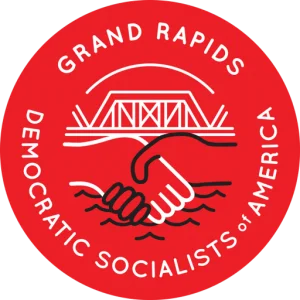

GRDSA for the Many – We support money out of politics, funding education, and rank choice voting!
There are several ballot initiatives circulating petitions this cycle. The members of the GRDSA are proud to endorse Invest in MI Kids, MOP Up Michigan, and Rank MI Vote. If successful, these initiatives would mean real change for Michiganders.
We are circulating petitions! Our goal is to contribute 1,000 collected signatures for the Invest in MI Kids and MOP Up Michigan campaigns. If you are interested in volunteering, please fill out this form.

Invest in MI Kids – investinmikids.org
We support this ballot initiative because every student deserves access to excellent public education. This excellence requires proper facilities, educational material, and well-paid teachers. To fund these vital elements of education, this initiative would create a 5% fair share surcharge on income over $500K ($1M filing jointly) to be deposited in the State School Aid Fund. It will also add a requirement that money from the School Aid Fund be spent exclusively on local school districts.
MOP Up Michigan – mopupmichigan.org
MOP = Money Out of Politics
We deserve fair utilities, a clean environment, and honest elections. But as our bills continue to grow, utility companies use political contributions to avoid accountability and slow down reform. This ballot initiative would reign in corporate control of government by prohibiting companies with over $250,000 in government contracts from making campaign contributions. Additionally, the initiative introduces finance laws which would require donor information to be made more clear in political communications.
Rank MI Vote – rankmivote.org
NOTE: The Rank MI Vote campaign has suspended signature gathering for their 2026 statewide campaign.
We believe every voter should feel comfortable voting for their best option, rather than the better of two bad options. Rank choice voting is an alternative voting system where the voter ranks up to five candidates for each office, as opposed to picking one option. This allows the voter to rank their favorite candidate first, even if they aren’t likely to win, before ranking their second, third, etc. Voters may still vote for just one candidate or leave that office/section blank. If the votes are tallied and no candidate has enough votes to win, candidates with less votes are eliminated and back up choices are used until one candidate wins.
Dishonorable Mention
There are a few bad petitions circulating as well. There are some that would require IDs to vote and one to cut taxes, Ax MI Tax. Decline to sign these regressive initiatives.
The post GRDSA for the Many – We support money out of politics, funding education, and rank choice voting! appeared first on Grand Rapids Democratic Socialists of America.


The Vermont Socialist (12/7/25): The belated November edition
Happy belated Thanksgiving, and apologies for the tardy newsletter. Remember that it’s now flu season, so make sure that your immunizations are up to date (or you too might fall behind on your work!).
The legislative season is around the corner, and legislators are dealing with the fallout from federal budget cuts, with which come an intensification of the ever-present calls for austerity. This year, some of our most vulnerable friends and neighbors were thrown on the street and left without food. GMDSA believes not just that everyone deserves housing and food, but that the money exists — what we need is the political will. That’s why GMDSA’s second annual convention voted to make Tax the Rich our priority campaign for 2026.
Our members also voted on a new slate of officers and committee chairs. Congratulations in particular to Will Fritch, our new East Branch Co-Chair, and Nana Brownell, who will be returning to that same role for West Branch.
Upcoming Events
GMDSA is sponsoring “For Ukrainian Self-Determination: Building International Working Class Solidarity,” featuring our very own Sen. Tanya Vyhovsky and Traven Leyshon. Discussion begins December 15th at 5pm at Migrant Justice (179 S. Winooski Ave., Burlington) .
Talk about your job and learn about shop-floor organizing from peers at Workers' Circle (co-hosted by the Green Mountain IWW) on the second and fourth Wednesdays of each month. The next one is at 6pm and is also at Migrant Justice on December 10th.
GMDSA Meetings
Labor Committee meets December 8 at 6pm
Membership Committee meets December 8 at 7pm
Electoral Committee meets December 9 at 6pm
Communications Committee meets December
General Meeting on December 20th (details TBA; check our calendar)
TState News
Burlington’s democratic, member-run, GMDSA-sponsored cinema is now open for business. Congrats to Partizanfilm on its successful opening!
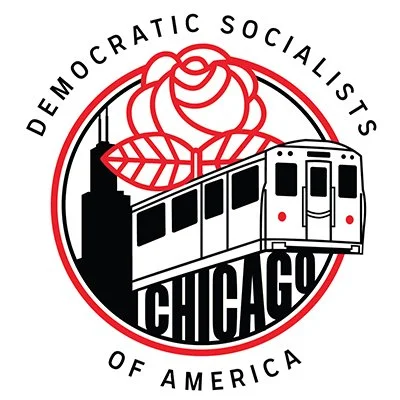

Grassroots Red-Greens
World leaders continue to show the necessity for the development of ecosocialism at the local level. Faced with capitalist ecocide, ecosocialism demands ecological balance. As noted by Anti*Capitalist Resistance, environmental issues are not luxury concerns, because the same people polluting the planet are the people oppressing the working class. The fight against capitalism’s waste and inequity must begin locally and spread internationally.
One example of an international shortcoming is the November 2025 United Nations Climate Change Conference (also known as COP30, the 30th meeting of the Conference of the Parties, in Belém, Brazil) ending without an agreement on phasing out fossil fuels. This is not surprising, considering COP30 had around 1,600 attendees who were fossil fuel lobbyists, outnumbering every national delegation other than Brazil. This is in addition to the voices of petrostate attendees like Russia and Saudi Arabia and the absence of the United States, one of the world’s largest emitters of greenhouse gas, which did not send a delegation. A group of U.S. leaders did attend in an unofficial capacity, however, and they discussed how U.S. cities and states are addressing the climate crisis.
Although absent from COP30 and with leadership that increasingly rejects climate science, the U.S. is experiencing the devastating effects of climate change. Across all regions of the United States, people are experiencing warming temperatures and extreme weather conditions, including flooding, wildfires, and hurricanes. Low-income areas and communities of color disproportionately feel these effects.
But there are economic costs, too, as the first half of 2025 was the costliest on record for major disasters in the U.S., totaling over $100 billion. The United States will continue to face direct and compounding challenges as average surface temperatures continue to rise.
For the above reasons and many others, the journey to national (and, eventually, worldwide) ecosocialism must begin locally. Localities, particularly cities like Chicago, have the potential to successfully implement ecosocialist goals. These goals include efficient and universally accessible public transportation, local food sovereignty, and the elimination of fossil fuels.
The work the Fix the CTA campaign has been doing will strengthen Chicago’s public transportation system. If Zohran Mamdani achieves his goal of free public buses in New York City, such an accomplishment can serve as a model for Chicago and other municipalities. New York City’s congestion pricing should also be a model for municipalities, as the corollary for free and efficient public transportation is the reduction of private vehicles.
Despite inequities and reliance on multinational corporations, Chicago can accomplish local food sovereignty through, among other things, greater support for local growers and kitchens.
New York’s Build Public Renewables Act, which authorizes state-owned clean energy projects, is an example of favorable decarbonization that resulted from years of organizing by DSA. Although New York is unique in that it has the nation’s largest public energy provider, passage of the Build Public Renewables Act shows that grassroots organizing works. People in every jurisdiction can organize for clean energy sources like solar power.
On a daily basis, people in every jurisdiction can recycle and use other sustainability efforts to minimize our own ecological footprint. Reusing items also serves the dual purpose of minimizing the flow of money from corporations to dangerous regimes.
Of course, the final boss of ecosocialism is capitalism as a whole. Ecological balance is inconsistent with capitalism’s profit maximization that commodifies both people and nature. In that vein, ecosocialism requires a widespread and revolutionary social transformation and collectivization of the means of production. But the roots for ecosocialism are planted at home.
The post Grassroots Red-Greens appeared first on Midwest Socialist.

Your National Political Committee Newsletter — Bringing the Light
Enjoy your December National Political Committee (NPC) newsletter! Our NPC is an elected 27-person body (including both YDSA Co-Chairs) which functions as the board of directors of DSA. This month, check out hot labor solidarity across the country, sign up for volunteer opportunities for the New Year, and more!
And to make sure you get our newsletters in your inbox, sign up here! Each one features action alerts, upcoming events, political education, and more.
- From the National Political Committee — Bringing the Light
- Workers Demand More Forever Program Committee — Apply by Friday 1/9/26
- DSA Archive Volunteer Opportunity — Deadline Saturday 1/10/26
- Be Part of the DSA National Editorial Board! Apply by Thursday 1/15/26
From the National Political Committee — Bringing the Light
Dear Comrades,
Cultures around the world have found ways to celebrate the time around the winter solstice, using candles and lights to cut through the early darkness, and celebrations and rituals to combat the isolation and sadness that comes with the winter’s chill.
As socialists, this is a time to pause and remember what we are fighting for; to look past the commercialism and commodification and understand that we deserve to have the space and safety to make community, the resources to enjoy the company of our loved ones, and the right to rest. As the old slogan goes, “we fight for bread, but we fight for roses, too.” We, the working class, have the right to have our basic needs fulfilled, and we also have the right to lives full of joy and celebration and relaxation.
The symbolism of the season holds true: everywhere you look, you can see our comrades in DSA finding ways to bring light into the world. Chapters across the country, from Atlanta to Detroit to Denver and beyond, are standing strong with our partners at Starbucks Workers United and saying “No contract? No coffee!” If your chapter isn’t already engaged in Starbucks solidarity but you’d like to be, get in touch with DSA’s National Labor Commission and get started, and in the meantime, don’t hesitate to find a nearby picket line and jump in!
With the final runoffs in the bag, season is officially over for the year and just across the river from the soon-to-be-Mamdani-led New York City, two socialists and proud North New Jersey DSA members, Jake Ephros and Joel Brooks, won their Jersey City Council races, bringing a socialist legislative bloc to the city in one fell swoop.
And from coast to coast, chapters are taking on Trump’s fascist deportation machine: participating in ICE Watch programs, organizing for sanctuary city legislation, and making ICE collaboration a toxic decision for businesses like Avelo Airlines.
There is so much more critical work happening everywhere in the country as DSA works to build working class power and take back our rights and dignity from the fascists and their billionaire funders. If you are not yet a DSA member, join us now. And if you are a member, you’ve still got time to jump in on the Fall Drive, recruit three new folks and win yourself a limited edition 2025 Fall Drive t-shirt, designed by Chattanooga DSA leader and labor artist Tabitha Arnold!
And Young Democratic Socialists of America (YDSA), our youth and students section, is preparing for next year’s organizing too. Are you a student interested in building the movement for democratic socialism on your campus? Know someone who is? Registration for the 2026 YDSA Organizing Conference is open! The Conference will be held from 2/20/26 to 2/22/26 in Chicago, Illinois. The weekend will be full of inspiring speakers, opportunities to connect with other organizers from across the country, and tons of skills workshops. You can register at the link here. Early bird rate of $99 ends this Sunday, 12/21!
2026 will demand a lot of our energy, so we genuinely hope that you have the chance to recharge your batteries with warmth and light and your favorite holiday snacks and plenty of rest over the next few weeks. The fight continues, and we’ll see you in the new year!
In Solidarity, Comfort, and Joy,
Megan and Ashik
DSA National Co-Chairs
Workers Demand More Forever Program Committee — Apply by Friday 1/9/26
Applications are now open for the Workers Demand More (WDM) Forever Program committee! As a reminder, Resolution 34, Workers Deserve More Forever, was passed at this August’s National Convention. The 13-member program committee calls for four at-large members in good standing. To apply, see here. The application deadline is Friday, January 9th at 11:59pm PT.
This committee is time bound. After its tasks are completed, the Program committee will dissolve and the NPC members who had been on the committee will be the primary liaisons and stewards to the organization’s various bodies and socialists in office to support and promote the effective use of WDM.
DSA Archive Volunteer Opportunity — Deadline Saturday 1/10/26
The Archives Policy of the Democracy Commission (CB01-01) was passed by the 2025 DSA National Convention to create an archive of DSA meeting minutes, Convention results, and standing policies available to all members, and empowered the NPC to designate a group of members to assist with the archiving project, with their efforts concluding no later than January 1, 2027. Archive documents can be submitted here.
The Archive Committee will be undertaking this effort over the next year to ensure the archive is completed, and will assist the NPC Secretary in regular reporting and expanding the scope of resources to be available in the Archives. Applications are due by Saturday 1/10/26.
Be Part of the DSA National Editorial Board! Apply by Thursday 1/15/26
Applications are now open to the 2025-2027 DSA National Editorial Board. The Editorial Board is a 9-member body appointed by the NPC that oversees the organization’s two national publications, Democratic Left and Socialist Forum. The Editorial Board is composed of members with various points of view on important political questions. It does not exist to develop a single theoretical or strategic perspective. As a result, the publications reflect the wide range of views within the organization. The goal of the Editorial Board is not to espouse a particular “party line,” but to maintain strong editorial standards for our publications. As such, the process prioritizes familiarity with DSA and editorial experience in appointment to positions on the board.
The post Your National Political Committee Newsletter — Bringing the Light appeared first on Democratic Socialists of America (DSA).
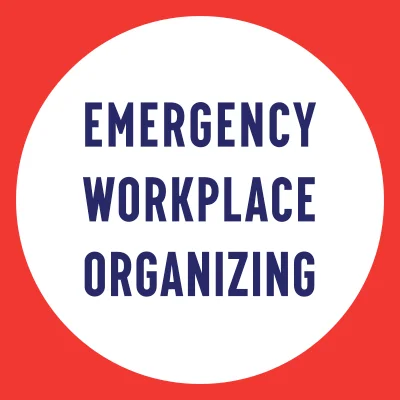

20 tips for new organizers from 1199
Tried and true tips to help labor organizers stay focused on what matters most: worker self-activity.
The post 20 tips for new organizers from 1199 appeared first on EWOC.
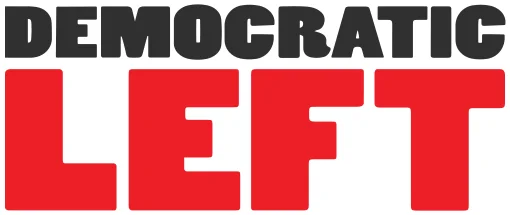

How to Survive as a Teen Under Trump
A member of the National Political Committee shares lessons learned from growing up in a political crisis.
The post How to Survive as a Teen Under Trump appeared first on Democratic Left.

